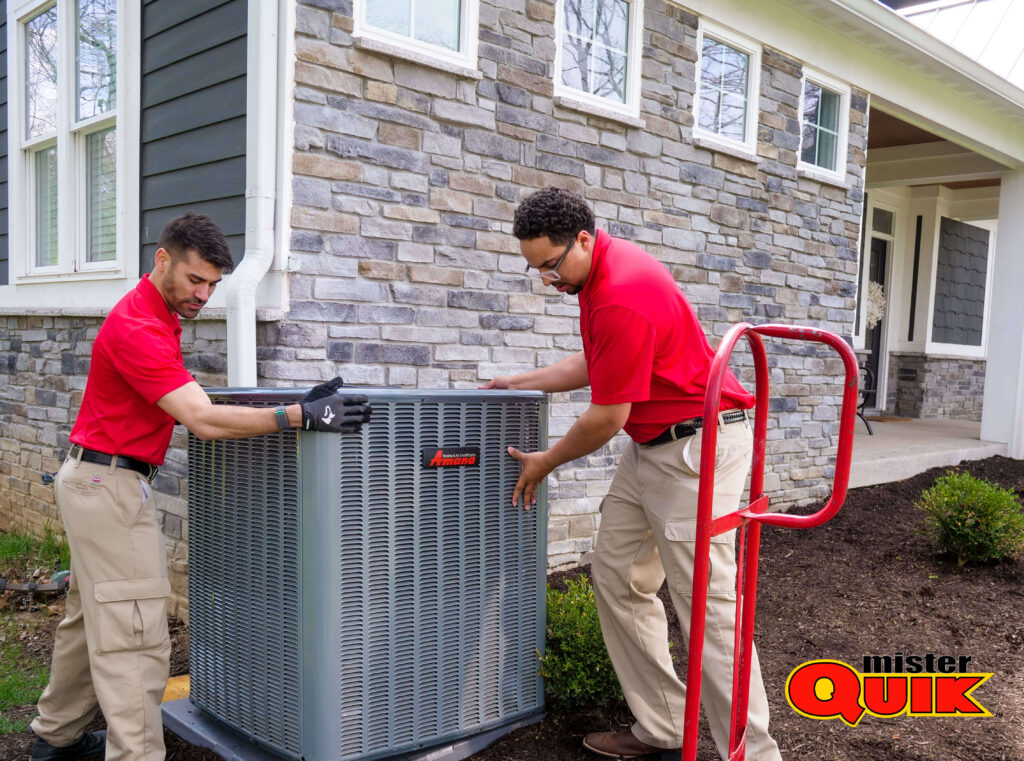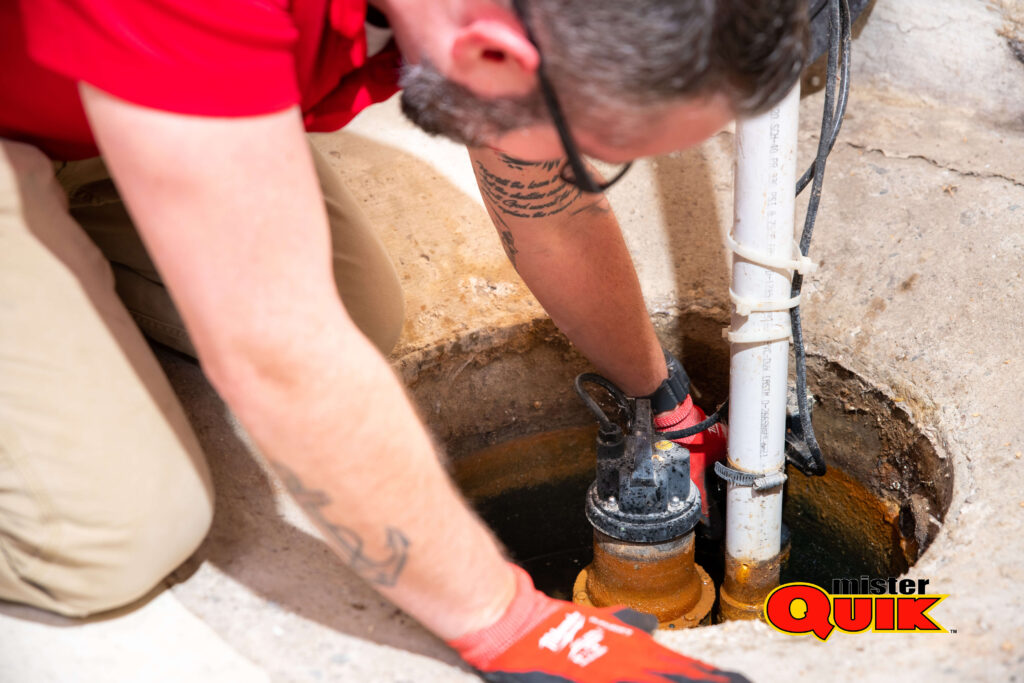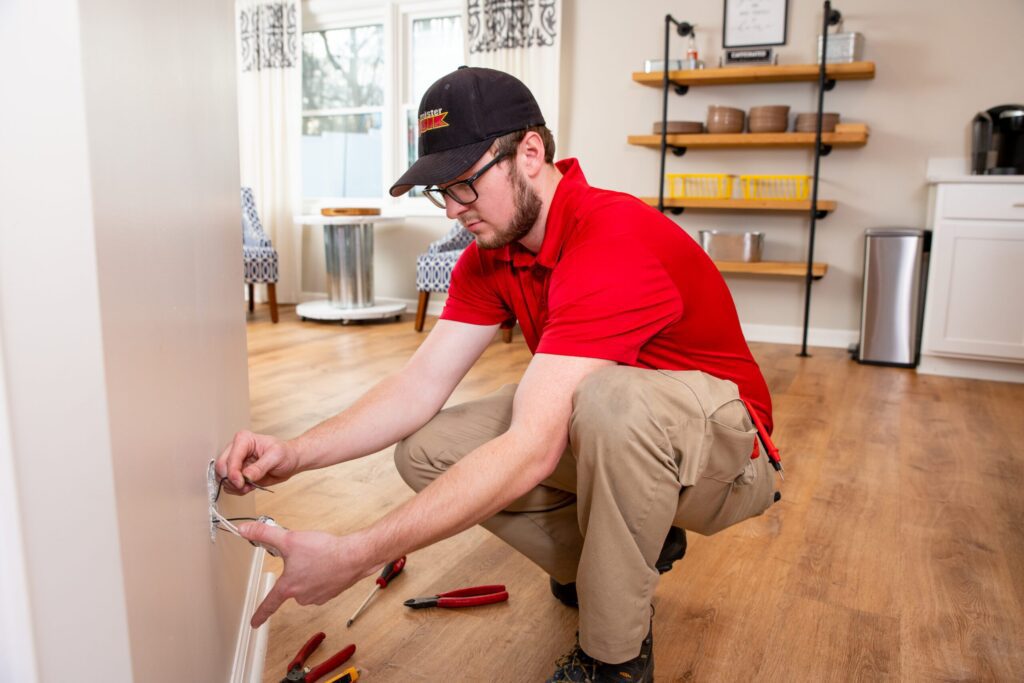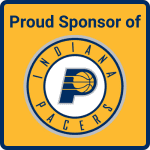Winter Prep List: Indiana Top 4
Top 4 Things Indiana Homeowners Need To Do To Get Their Home Winter-Ready Winter is just around the corner, and as temperatures drop, it’s time
The lifespan of air conditioners typically ranges between 10 to 15 years, with proper maintenance and regular servicing contributing significantly to their longevity. Factors such as usage frequency, climate conditions, and quality of installation also impact their durability. While some units may require repairs or parts replacement over time, newer models often offer improved energy efficiency and advanced features that can extend their lifespan. Investing in routine maintenance and promptly addressing any issues can help maximize the lifespan of an air conditioner.
Your air conditioner may not be blowing cold air due to several potential reasons. It could be a result of a low refrigerant level, indicating a possible leak in the system, or a dirty or clogged air filter hindering proper airflow. Additionally, a malfunctioning thermostat, damaged compressor, or issues with the condenser coils could also be culprits. Regular maintenance, such as cleaning or replacing filters and scheduling professional inspections, can help prevent and address these issues, ensuring optimal performance of your air conditioning system.
The best form of home heating depends on various factors such as climate, energy efficiency, and cost-effectiveness. Options range from traditional furnaces powered by gas or electricity to newer technologies like heat pumps or radiant heating systems. Assessing insulation levels, local utility costs, and environmental impact can help determine the most suitable choice. Additionally, considering long-term maintenance and potential rebates or incentives may influence the decision-making process. Ultimately, the best heating solution for one home may not be the ideal choice for another, so it’s essential to weigh these factors carefully before making a decision.
To keep a poorly insulated house warm, focus on improving insulation by sealing drafts around windows and doors, adding insulation to attics, walls, and floors, and using heavy curtains or thermal window coverings to reduce heat loss. Additionally, optimize heating systems by ensuring they are well-maintained, using space heaters strategically in frequently used areas, and utilizing programmable thermostats to regulate temperature efficiently. Finally, consider alternative methods such as using rugs or carpets to insulate floors, utilizing draft stoppers for doors, and employing portable draft guards for windows to further minimize heat loss and maintain a comfortable indoor environment.
A good indoor air quality reading typically falls within the range of 0 to 50 on the Air Quality Index (AQI) scale, indicating minimal health risk. This level signifies clean air with low levels of pollutants, promoting a healthy indoor environment. Factors such as ventilation, filtration, and pollutant sources can influence the reading, with lower numbers suggesting better air quality. Regular monitoring and maintenance can help maintain optimal indoor air quality for occupants’ well-being.
The most popular plumbing type is PVC (Polyvinyl Chloride). PVC pipes are widely used in residential and commercial plumbing systems due to their affordability, ease of installation, and durability. They are resistant to corrosion, chemicals, and rust, making them suitable for various applications including water supply lines, drainage, and sewer systems. Additionally, PVC pipes are lightweight, which simplifies handling and reduces labor costs during installation. Overall, PVC remains the preferred choice for plumbing installations in many contexts.
Cleaning your house sewer line involves several steps to ensure proper maintenance and functionality. If you’re unable to clear a stubborn clog with basic household items, such as a plunger, you should hire a professional to assess the situation further to avoid damaging pipes.


When summer heat hits and your air conditioner sputters out, your home can quickly become an uncomfortable and sweltering space. Fortunately, Mister Quik can diagnose and address various issues, ensuring your AC system functions efficiently and restores cool comfort to your home. Here’s what you can expect during the repair process:
Remember: Attempting DIY repairs on an AC unit, particularly gas-powered models, can be dangerous and should only be performed by qualified and experienced professionals. Don’t risk your safety; trust certified technicians to handle your air conditioning repair needs.
An air conditioning system, often abbreviated as AC, is a crucial component for maintaining comfortable indoor temperatures during hot and humid weather. It works by removing heat and humidity from the interior air and transferring it outdoors, creating a cooler and more comfortable environment.
Here’s a breakdown of the key aspects of air conditioning systems:
Components:
Thermostat: This control panel allows you to set the desired temperature and regulates the system’s operation to maintain that temperature.


Installing an air conditioning system is a complex process that should be entrusted to qualified professionals. Here’s a general overview of the steps involved:
Regular maintenance is crucial for ensuring the efficient and reliable operation of your air conditioning system. Here are some key aspects of air conditioning service:
By understanding the components, installation process, and importance of service, you can make informed decisions regarding your air conditioning system and ensure it keeps your home cool and comfortable throughout the hot weather.




When the summer heat hits and your air conditioning system needs attention, Mister Quik Home Services is here for you. Our team provides reliable and efficient home air conditioning services conveniently located near you. Whether you need routine maintenance, repairs, or a new installation, our skilled technicians are ready to help keep your home cool and comfortable throughout the season.
With our prompt response times and commitment to customer satisfaction, you can trust Mister Quik to handle all your air conditioning needs with professionalism and expertise. Don’t let a malfunctioning AC system ruin your comfort – contact us today to schedule your home air conditioning service and enjoy worry-free cooling all summer long.



Heating systems are essential for staying warm and comfortable during the colder months. There are many different types of heating systems available, each with its own advantages and disadvantages. The best heating system for your home will depend on a number of factors, including your climate, the size of your home, your budget, and your desired features.
Some of the most common types of heating systems include:
Best Heating System for Your House
There’s no single “best” heating system for every house. The optimal choice depends on several factors, including:
Here’s a brief overview of popular heating systems to consider:
Consulting with a qualified HVAC professional can help you evaluate your specific needs and recommend the most suitable heating system for your house.




The cost of a heating system can vary depending on several factors, including:
Here are some general cost ranges to give you an idea:
Heating: This system is responsible for maintaining comfortable temperatures within the building during cold weather. It achieves this by generating heat through various methods like burning fuel, using electricity, or harnessing the Earth’s constant temperature (geothermal). The generated heat is then distributed throughout the building using different techniques like forced air (through ducts), hot water (through pipes), or radiant panels (embedded in floors or walls).
Plumbing: This system focuses on managing the water flow within a building. It encompasses the entire network of pipes, fixtures, and appliances that bring clean water into the building, distribute it for various uses (drinking, bathing, sanitation), and remove wastewater. This includes:
These two systems, though distinct, often overlap and rely on each other. For instance, some heating systems utilize water as the heat transfer medium, requiring plumbing components like pipes and valves. Additionally, plumbers often possess the expertise to handle water-driven heating systems and gas lines.




Because we care for your home just as much as you do.
Since 2000, Mister Quik is a family-owned and operated home service company dedicated to
Here are four common types of heating systems:
doing business in Terrell the right way. We stand by our work too. With The Milestone Guarantee, if you’re not 100% satisfied—then we’re not done. And, we match the same product for the same price; apples to apples.


When you’re in need of plumbing services in Mooresville, look no further than Mister Quik Home Services. Our team of experienced plumbers is dedicated to providing top-notch plumbing solutions tailored to your location. From leaky faucets to major plumbing repairs, we’re here to address all your plumbing needs efficiently and effectively. Trust Mister Quik for reliable plumbing services conveniently located near you.
Mister Quik Home Services offers comprehensive plumbing services to meet all your needs. Whether it’s repairs, installations, or maintenance, our skilled plumbers have the expertise to get the job done right the first time. We pride ourselves on delivering prompt and professional service that exceeds your expectations. Contact us today to schedule plumbing services tailored to your needs.


When searching for reputable plumbing companies in Mooresville, Mister Quik Home Services is your trusted partner. As one of the leading plumbing companies nearby, we’re committed to providing top-quality plumbing services to our customers. With our skilled plumbers, transparent pricing, and exceptional customer service, you can trust us to handle your plumbing projects with professionalism and expertise.
If you’re seeking employment opportunities in the plumbing industry, Mister Quik Home Services is always looking for talented individuals to join our team. Whether you’re an experienced plumber or just starting your career, we offer competitive compensation, ongoing training, and a supportive work environment. Visit our website or contact us directly to learn more about current job openings and how you can become part of the Mister Quik team.




While some plumbing issues can wait, others require immediate attention to prevent further damage or health risks. Here are some of the most common plumbing emergencies:
Remember, if you encounter any of these emergencies, it’s crucial to act quickly to minimize damage and ensure the safety and health of your household.


The drainage and sewerage system is a network of pipes that transport wastewater and rainwater away from buildings and communities. It plays a crucial role in maintaining public health and sanitation.
Key components of the system:
A blocked sewage drain is a serious issue that requires immediate attention. It can cause sewage to back up into your home, posing a health hazard and causing significant damage.
Signs of a blocked sewage drain:
If you suspect a blocked sewage drain, it’s crucial to:
Contact a licensed plumber immediately to address the blockage professionally.




Several problems can disrupt the smooth operation of a sewage drainage system:
Both sewage and house drains can become blocked due to various factors:




While professional assistance is always recommended for serious blockages, there are some simple methods you can try for minor drain clogs:
Remember, these methods should only be attempted for minor clogs and are not a substitute for professional help in case of severe blockages or sewage issues.


An indoor air quality monitor is a device that measures various pollutants and other characteristics of the air within a building or structure. These monitors can track things like:
By monitoring these factors, individuals can gain valuable information about the quality of the air they breathe indoors and take steps to improve it if necessary.
Indoor air quality standards are guidelines set by organizations like the Environmental Protection Agency (EPA) to establish acceptable levels of various pollutants within buildings. These standards are not legally enforceable but serve as a reference point for individuals and organizations aiming to maintain healthy indoor environments.
It’s important to note that standards may vary depending on the specific pollutant, the type of building (residential, commercial, etc.), and even the specific location within the building.





The Indoor Air Quality Index (IAQI) is a tool developed by the EPA to translate complex air quality data into a user-friendly format. It combines information on multiple pollutants into a single numerical score, ranging from 1 (good) to 500 (hazardous). This score allows individuals to easily understand the overall air quality in a space and take appropriate action.
Several companies offer indoor air quality testing and monitoring solutions. These companies can provide:




Indoor air quality testing involves measuring the levels of various pollutants present in the air within a building. This process typically involves:


The term “electrical supply” refers to the complete system involved in delivering electricity from its generation source to the end user. Here’s a breakdown of the key components:
Electrical work encompasses any task involving the installation, repair, or maintenance of electrical systems. It can range from simple tasks like replacing light bulbs to complex projects like rewiring an entire building.
Types of electrical work:
Additional points to consider:
Hiring licensed electricians ensures they are qualified and possess the necessary knowledge and experience for safe and proper electrical work.




Looking for an electrical shop near Mooresville? Look no further than Mister Quik! Our shop offers a wide range of electrical supplies and products to meet your needs. Whether you’re a homeowner tackling a DIY project or a professional electrician in need of quality materials, we’ve got you covered. Call us today to explore our extensive inventory and receive expert advice from our knowledgeable staff.
It’s important to clarify that “electrical plumbing” is not an accurate term, as plumbing and electrical systems are distinct and should never be combined due to safety concerns. While both are crucial aspects of a building’s functionality, they deal with different elements and should be treated separately.
Here’s a breakdown of their individual functions:
Here’s why combining them is dangerous:
If you encounter any issues related to your plumbing or electrical systems, always seek the help of qualified professionals:




Top 4 Things Indiana Homeowners Need To Do To Get Their Home Winter-Ready Winter is just around the corner, and as temperatures drop, it’s time
What NOT to Put Down Your Drain This Holiday Season: Tips From Your Friends at Mister Quik Published: Tuesday, December 3, 2024Hi there, friends!The holiday
How to Not Invite Mister Quik Over for Thanksgiving: Prepping Your Home for Holiday Visitors Thanksgiving is a time for family, friends, and delicious feasts.
Expanding Excellence: Mister Quik Home Services Acquires Seriously 24/7 Plumbing Mister Quik Home Services, a leading provider of plumbing, electrical, and HVAC services across Indiana, announced
Mister Quik Home Services Strengthens Fishers Presence With Reasonable Plumbing Acquisition Mister Quik Home Services, a leading provider of plumbing, electrical, and HVAC services across Indiana,
Top 5 — Things You Should Never Put Down Your Home Drain Twitter Facebook-f Dream big, anything is possible now. If you’re like most homeowners, you
General Contractor License: GC1200161
Electrical License: E0020131
HVAC License: H0020150
Plumbing License: CO50900281


General Contractor License: GC1200161
Electrical License: E0020131
HVAC License: H0020150
Plumbing License: CO50900281